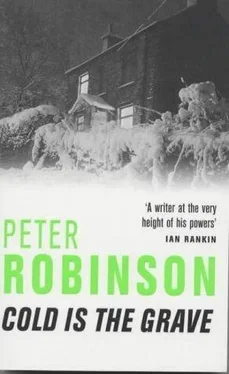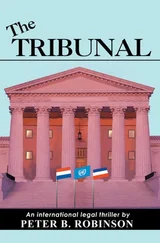Not much hope of that, Banks thought, not after the day he had just been through.
The Charlie Courage murder occurred in early December, about a month after Banks had delivered Emily Riddle to her father’s house, a little battered and shop-soiled, but not too much the worse for wear. Judging by her silence on the train journey back to Yorkshire, he imagined she might lie low for a while before taking on the world again. In the meantime, Banks had been preoccupied with major changes at Eastvale Divisional Headquarters.
The county force had been reorganized from seven divisions into just three, and Eastvale was the new headquarters of the large Western Division, which took in just about the entire county west of the A1 to the Lancashire border, and from the Durham border in the north to the border with West Yorkshire in the south. There were vast areas of wilderness and moorland, including most of the Yorkshire Dales National Park, and the main occupations were the service industry, tourism, agriculture and a smattering of light industry. There were no major urban areas, but a number of big towns such as Harrogate, Ripon, Richmond, Skipton and Eastvale itself.
There was, of course, plenty of crime, and in keeping with its new status, the Eastvale station had been extended into the adjoining building, where Vic Manson’s fingerprints unit, scenes-of-crime, computers and photography departments had all set up shop. Renovations were still going on, and the place was filled with noise and dust.
While the section stations would continue to police their areas as before – indeed, they were to be given even more autonomy – Eastvale was now to be responsible for most of the criminal investigation within the new Western Division. Nobody was sure yet how many CID officers – or Crime Management Personnel, as some now liked to call them – they would end up with, or where they would all be put, but staffing increases had already begun.
One of the first moves that the Director of Human Resources, Millicent Cummings, had made was to transfer Detective Sergeant Annie Cabbot to the new team. Millie told Banks that she thought Annie had worked well with him on their previous case, no matter what Chief Constable Riddle thought of its messy outcome, and that as Annie was going for her inspector’s boards as soon as she could, the experience would be good for her.
Millie, of course, along with Riddle and everyone else, didn’t know about Banks’s affair with Annie, and Banks could hardly say anything now. This was a good opportunity for her to get back in the swing of things, and he certainly wasn’t going to stand in her way. Annie was a good detective, and if she could handle working with Banks, he could at least try to accommodate her.
The county also had a new Assistant Chief Constable (Crime) in the shape of Ron McLaughlin, known jokingly as “Red Ron” because he leaned more to the left than most senior policemen. ACC McLaughlin was known to be a hard but fair man, one who believed in using his officers’ abilities to the fullest, and he was also rumored to enjoy a wee dram of malt every now and then.
It was a misty, drizzling day – what the locals called “mizzling” – when Riddle got the chance to make good on his promise to Banks. Over the last year or so, all serious crimes in the division that couldn’t be handled by Detective Superintendent Gristhorpe, Detective Sergeant Hatchley and whichever DCs happened to be assigned to Eastvale Divisional Headquarters at the time, had been passed on to other divisions, or to the Regional Crime Squad, leaving Banks free to devote all his duty hours to paperwork and administration.
Since he had done Riddle the big favor of bringing Emily back home, since the big changes around the station, and since things had finally come to an end with Sandra, the thought of moving from his Gratly cottage and starting a new job with the NCS had begun to lose its appeal, and Banks had withdrawn his application. Eastvale was starting to seem like a good bet again, and it was where he wanted to be.
Despite the drizzle and the filthy gray sky, Banks felt in a buoyant, optimistic mood. He was reading a report on the sudden increase of car theft in rural areas, and in need of a break, he went to stand by the window to smoke a proscribed cigarette and look down on the market square in the late afternoon.
The renovators were mercifully silent, no doubt planning their next major assault, and Banks’s radio played quietly in the background: Prokofiev’s Piano Concerto No. 3. The Eastvale Christmas lights, turned on in the middle of November by some third-rate television personality Banks had never heard of, made a pretty sight outside his window, hanging across Market Street and over the square like a bright lattice of jewels. Soon they’d be putting up the huge Christmas tree by the market cross, and the church choir would be out singing carols at lunchtime and early evening, collecting for charity.
Brian thought he would be busy with the band over the holidays, but Tracy had phoned the previous day and promised to spend Christmas with her father before heading down to London to see her mother on Boxing Day. Banks had never been much of a fan of Christmas – far too many holiday seasons spent working and witnessing the gaudy excess of suicides and domestic murders that peaked around that time of year had taken care of that – but this called for celebration; this year he would make an effort, buy a small tree, presents, put up some decorations, cook Christmas dinner.
Last year had been a complete washout. He had turned down all offers of meals, drinks and parties from friends and colleagues and spent the entire holiday alone in the Eastvale semi he had once shared with Sandra, wallowing in his own misery and keeping up his maintenance buzz with liberal tots of whisky. Brian and Tracy had both phoned, of course, and he had managed to bluff his way past any worries they might have had about him, but there was no denying it had been a grim time. This year would be different. Delia Smith had a book about cooking for Christmas, he remembered; perhaps he would go to Waterstone’s and buy it before going home.
The telephone brought him back to his desk. “Banks here.”
“Chief Inspector Banks? My name’s Collaton, Detective Inspector Mike Collaton. I’m calling from Market Harborough, Leicestershire Constabulary. I just called your county headquarters and they put me on to you.”
“What can I do for you?”
“Earlier today a motorist stopped by the roadside near here and nipped down a lane into the woods for a piss. He found a body.”
“Go on,” said Banks, tapping his pen on the desk, still wondering what the connection was.
“It’s one of yours. Thought you might be interested.”
“One of my what?”
“Local villains. Bloke by the name of Charles Courage. Same as the brewery. Lived at number seventeen Cutpurse Lane, Eastvale.” He laughed. “Sounds like it could hardly be a more appropriate address, going by his record.”
Jesus Christ, Charlie Courage! Dutch , as his cronies jokingly called him on account of that was about the only courage he ever exhibited. Charlie Courage had been a thorn in the side of Eastvale Division for years. In truth, he was a petty villain, a minor player, but around Eastvale he was still a big fish in a small pond. Charlie Courage had done a little bit of everything – except anything that involved violence or sex – from handling stolen goods to sheep-stealing, when it was worth stealing them. You had to give Charlie his due; he was a character. Two or three years ago, he used to have a stall in Eastvale market, Banks remembered, right in front of the police station, where he blithely sold videos and CDs that in all likelihood had “fallen off the back of a lorry.” While questioning him about a local break-in once, Banks had even bought the Academy of Ancient Music’s CD of Mozart’s C Minor Mass for $3.99. A bargain at twice the price. He didn’t ask where it had come from. To his credit, Charlie had also acted as police informer on a number of occasions. Rumor had it that he had been going straight lately.
Читать дальше












